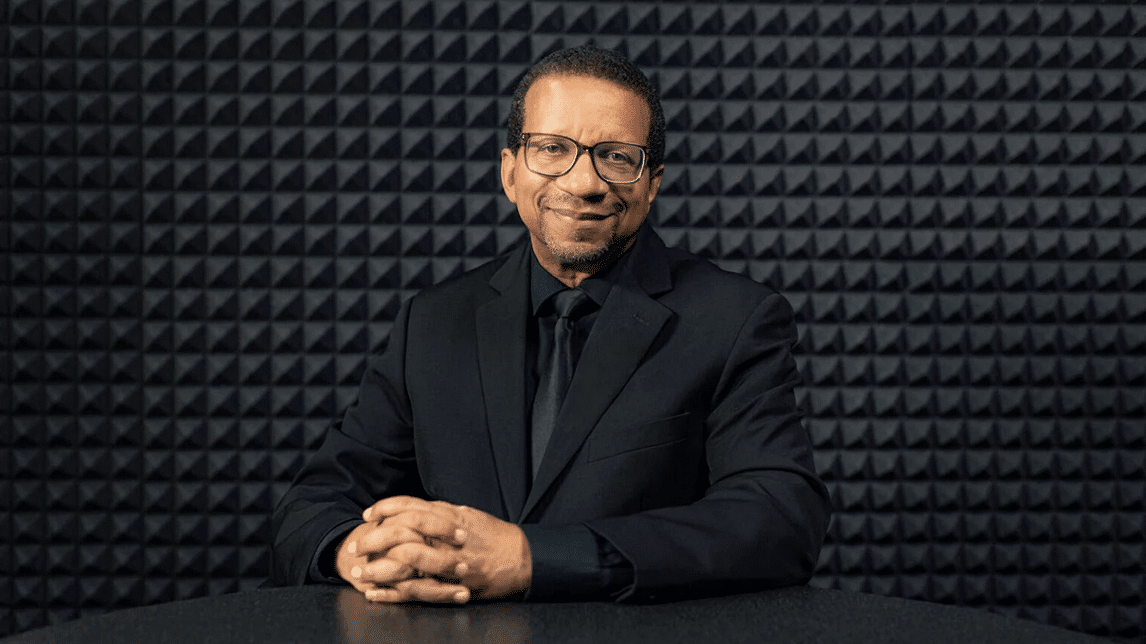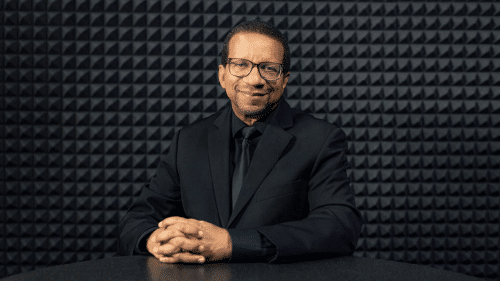

David Emmanuel Goatley, Fuller Theological Seminary’s new president. Photo courtesy of Fuller
(RNS) — Fuller Theological Seminary, the nation’s largest interdenominational seminary, has chosen as its new president David Emmanuel Goatley, the first Black person to hold the office.
Goatley will replace Mark Labberton, who announced he was stepping down last year after 10 years as president, saying he hoped his replacement would be a woman or person of color.
Goatley comes to Fuller from Duke Divinity School, where he was hired in 2018 to direct the Office of Black Church Studies and to teach theology. He has since also become associate dean for academic and vocational formation. He will take the helm at Fuller in January.
Fuller, which offers master’s and doctoral degree programs, contains two schools: the School of Mission and Theology and the School of Psychology & Marriage and Family Therapy.
The seminary, founded in Pasadena, California, in 1947 by the radio evangelist Charles E. Fuller, enrolled 2,458 students in 2021-22, slightly down from 2,788 in 2018-19, according to the Association of Theological Schools. It is seen by many as more progressive than some of its evangelical counterparts. School officials have allowed an LGBTQ student group on campus, for instance, even as they have maintained a traditional sex ethic in its code of conduct.
Santiago “Jimmy” Mellado, CEO of Compassion International, who chaired Fuller’s presidential search team, said Goatley was “uniquely prepared” to further Fuller’s mission.
A native of Louisville, Kentucky, Goatley, 61, is ordained in the National Baptist Convention. He earned a Ph.D. at Southern Baptist Theological Seminary and is best known for his theological study of mission work. For more than two decades, he served as CEO of Lott Carey Baptist Foreign Mission Society, a Black missions agency, stepping down in 2018.
“Blessed with an extraordinary collection of life experiences, healthy drive, innovative spirit, relevant capabilities all seasoned with wisdom, he brings a track record of building up diverse leaders for Jesus across the globe,” Mellado said.
Goatley acknowledged the strain on Christian theological education at a time when enrollments are declining, churches are closing and Christians are shrinking as a share of the U.S. population. In 2019 Fuller closed campuses in Orange County, Northern California and the state of Washington, but the seminary retains its campuses in Pasadena, Phoenix and Houston.
“These are tough times for institutions to serve the church,” Goatley said in a telephone call. “But we’ve been through tough times before. We won’t shrink from the challenge. ”
Goatley also cited the cost and accessibility of theological education as well as what he called the “toxicity of the culture,” among the challenges he will face in guiding the seminary.
He said he was drawn to Fuller because of its commitment to ministerial and vocational formation, its willingness to work in residential, remote and hybrid education and what he called its “commitment to the world.”
“That resonates with me and who I am and where I find energy,” Goatley said.
Labberton, who has been president of Fuller since 2013, previously served as pastor of First Presbyterian Church of Berkeley.






